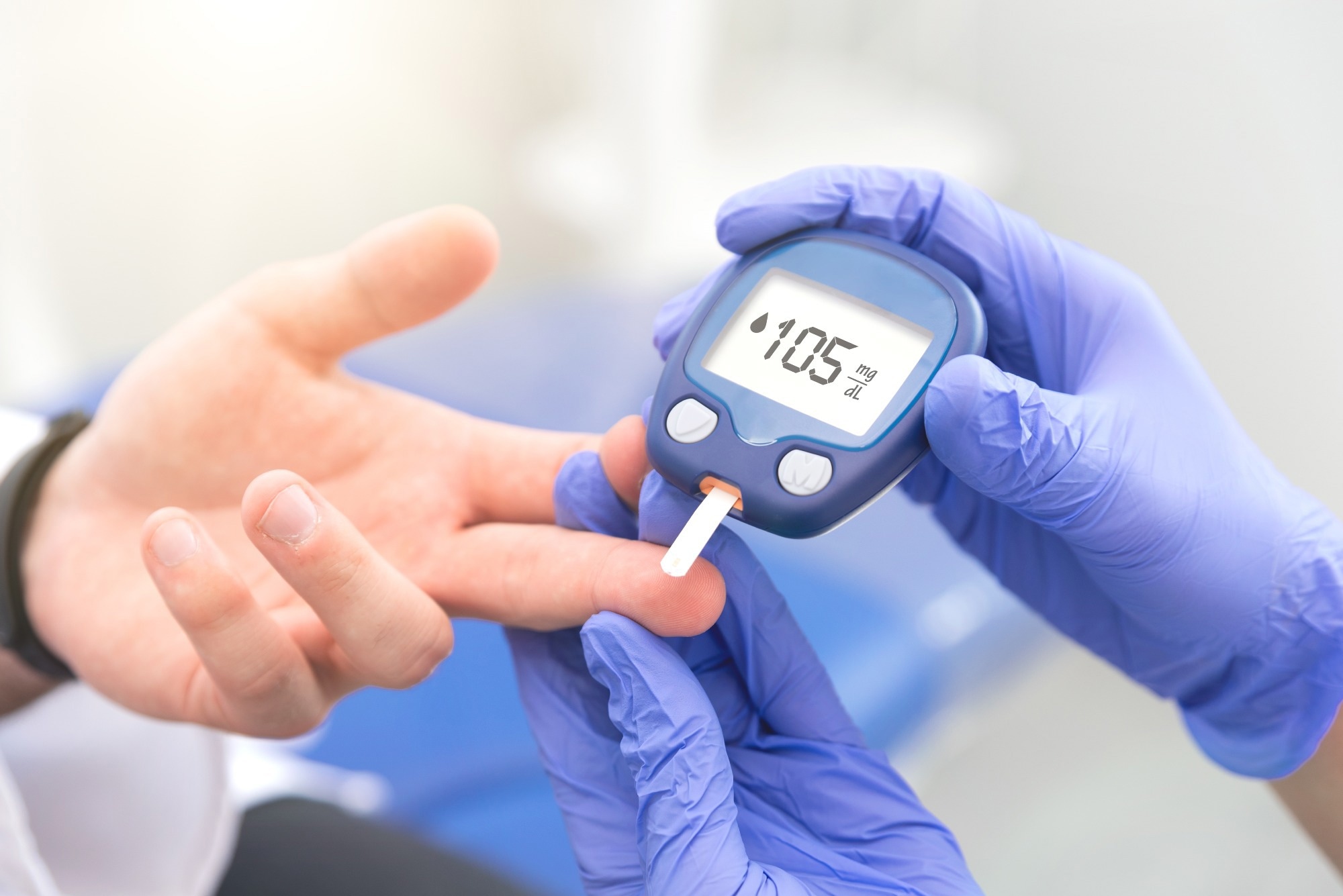Following the widespread administration of coronavirus disease 2019 (COVID-19) vaccines, an increased number of type 1 diabetes cases has been recorded. However, no population-based research has identified an association between COVID-19 vaccination and developing diabetes.
Several national cohorts have reported an increased risk of onset diabetes after recovering from COVID-19. Notably, the risk of diabetes following COVID-19 may vary according to the severe acute respiratory syndrome coronavirus 2 (SARS-CoV-2) variant causing the infection. It also remains unclear how immunization status affects risk.
 Study: Incidence of diabetes following COVID-19 vaccination and SARS-CoV-2 infection in Hong Kong: A population-based cohort study. Image Credit: Proxima Studio / Shutterstock.com
Study: Incidence of diabetes following COVID-19 vaccination and SARS-CoV-2 infection in Hong Kong: A population-based cohort study. Image Credit: Proxima Studio / Shutterstock.com
About the study
In the present population-based study, researchers evaluate the risk of new-onset diabetes linked with SARS-CoV-2 vaccination and after COVID-19, with further stratifications based on vaccination status and SARS-CoV-2 VOCs.
Individuals without diabetes were identified using a Hong Kong electronic database. The first group consisted of participants who had received at least one dose of the COVID-19 vaccine, as well as those who had not received any COVID-19 vaccine prior to September of 2021. The other group included SARS-CoV-2-infected individuals who had first SARS-CoV-2-positive reports on the rapid antigen tests (RAT) or reverse transcription polymerase chain reaction (RT-PCR) between January 1, 2020, and March 31, 2022 and individuals who had never been infected before March 31, 2022.
The study groups were monitored until August 15, 2022. The study consisted of 145,199 SARS-CoV-2-positive individuals and 325,715 SARS-CoV-2 vaccine recipients, of whom 167,337 and 158,378 were CoronaVac and BNT162b2 recipients, respectively. All study participants were propensity score-matched with their corresponding controls.
When predicting the conditional risk of being vaccinated, all results were controlled for past COVID-19 history and vaccination status to estimate the conditional risk of developing SARS-CoV-2 infections.
Cox regression models were used to calculate the hazard ratios (HRs) for incident diabetes. The Department of Health of Hong Kong provided anonymized COVID-19 immunization records, while the Hong Kong Hospital Authority (HA) contributed electronic medical records. Exclusion criteria included individuals below the age of 18, individuals who were deceased on or prior to the index date, individuals diagnosed with diabetes prior to the index date, and those who did not have glycated hemoglobin (HbA1c) records prior to the index date.
The outcomes of the study were both types 1 and 2 diabetes mellitus. Diabetes was diagnosed using ICD-9-CM and the International Classification of Primary Care (ICPC) diagnostic codes, HbA1c levels equal to or greater than 6.5%, or diabetes medication consumption for thirty days or more. Cox regression modelling was performed separately for each cohort to examine diabetes risk by age, gender, and prediabetes subgroups.
Individuals affected before and during Omicron predominance from January 1, 2022 onwards were divided into subgroups based on their COVID-19 history and vaccination status. Two sensitivity analyses were performed by comparing diabetes incidence after two BNT162b2 or CoronaVac vaccinations with their matched unvaccinated controls and censoring individuals at the vaccination date to eliminate probable effects of modification by COVID-19 vaccination in evaluating diabetes risks after COVID-19.
Study findings
Following COVID-19 vaccination, 4,411 and 5,760 diabetes cases were reported in BNT162b2 and Coronavac recipients, respectively. Vaccination recipients were younger and less likely to have comorbidities than controls.
Prediabetes was observed in 52% and 46% of CoronaVac and BNT162b2 recipients, respectively. No indication of an increased risk of new-onset diabetes following BNT162b2 or CoronaVac vaccination was observed, independent of diabetes type.
A total of 2,109 instances of diabetes were reported following recovery from COVID-19. COVID-19 survivors were older and had more comorbidities than controls.
Moreover, 42% of COVID-19 survivors were completely immunized, whereas 18% did not get vaccinated against COVID-19. COVID-19 was associated with a significantly increased risk of new-onset diabetes, primarily diabetes mellitus type 2, irrespective of the predominant circulating VOC; however, the risk was reduced with Omicron subvariants.
There was no evidence of an increased risk of new-onset diabetes in fully vaccinated COVID-19 survivors. After censoring the date of vaccination, the results were similar to the main study in sensitivity analyses.
Post-hoc analyses using Bonferroni correction, restricted mean survival time (RMST) analysis, Poisson regression, and inverse probability of treatment weighting (IPTW)-weighted Cox regression produced comparable results.
Conclusions
The study findings did not identify an increased risk of new-onset diabetes after COVID-19 vaccination. Comparatively, following recovery from COVID-19, the risk increased, with Omicron variants exhibiting a smaller but considerable additional risk.
Fully vaccinated individuals may be protected against incidental diabetes hazards following COVID-19. Taken together, these findings emphasize the importance of complete vaccination against COVID-19 to protect against severe symptoms and the sequelae of extended COVID, such as new-onset diabetes risk.